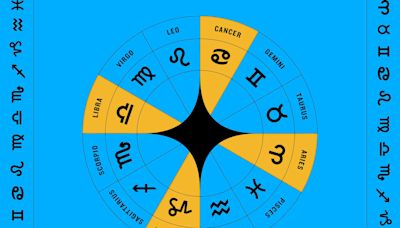Search results
Element is a decentralised app for real-time communication and collaboration based on the Matrix open standard. It offers data sovereignty, encryption, interoperability and customisation for personal and business use.
- Get Started
Setup your own self-hosted or cloud deployment with powerful...
- The Element App
A secure collaboration app to boost productivity. Element is...
- Element Server Suite
Element Server Suite (ESS) is a professional backend for...
- The Matrix Standard
Element is transforming organizations with Matrix: the open...
- Features
Element is a completely new type of collaboration. FOR...
- Integrations
Bots interact with third-party applications directly from...
- Use cases
Element provides organisations data sovereign, interoperable...
- Communities
Element is a group messenger and collaboration tool designed...
- Personal
Element is a secure messaging app with end-to-end encryption...
- Blog
Element is the fast, simple and private way to communicate...
- Get Started
Element, a Vue 2.0 based component library for developers, designers and product managers.
Learn the various meanings and uses of the word element, from the four substances of ancient cosmology to the basic units of matter and logic. See synonyms, examples, etymology, and related phrases of element.
- Overview
- General observations
- Historical development of the concept of element
- GeneratedCaptionsTabForHeroSec
chemical element, any substance that cannot be decomposed into simpler substances by ordinary chemical processes. Elements are the fundamental materials of which all matter is composed.
This article considers the origin of the elements and their abundances throughout the universe. The geochemical distribution of these elementary substances in the Earth’s crust and interior is treated in some detail, as is their occurrence in the hydrosphere and atmosphere. The article also discusses the periodic law and the tabular arrangement of the elements based on it. For detailed information about the compounds of the elements, see chemical compound.
At present there are 118 known chemical elements. About 20 percent of them do not exist in nature (or are present only in trace amounts) and are known only because they have been synthetically prepared in the laboratory. Of the known elements, 11 (hydrogen, nitrogen, oxygen, fluorine, chlorine, and the six noble gases) are gases under ordinary cond...
The modern concept of an element is unambiguous, depending as it does on the use of chemical and physical processes as a means of discriminating elements from compounds and mixtures. The existence of fundamental substances from which all matter is made, however, has been the basis of much theoretical speculation since the dawn of history. The ancient Greek philosophers Thales, Anaximenes, and Heracleitus each suggested that all matter is composed of one essential principle—or element. Thales believed this element to be water; Anaximenes suggested air; and Heracleitus, fire. Another Greek philosopher, Empedocles, expressed a different belief—that all substances are composed of four elements: air, earth, fire, and water. Aristotle agreed and emphasized that these four elements are bearers of fundamental properties, dryness and heat being associated with fire, heat and moisture with air, moisture and cold with water, and cold and dryness with earth. In the thinking of these philosophers all other substances were supposed to be combinations of the four elements, and the properties of substances were thought to reflect their elemental compositions. Thus, Greek thought encompassed the idea that all matter could be understood in terms of elemental qualities; in this sense, the elements themselves were thought of as nonmaterial. The Greek concept of an element, which was accepted for nearly 2,000 years, contained only one aspect of the modern definition—namely, that elements have characteristic properties.
Britannica Quiz
36 Questions from Britannica’s Most Popular Science Quizzes
In the latter part of the Middle Ages, as alchemists became more sophisticated in their knowledge of chemical processes, the Greek concepts of the composition of matter became less satisfactory. Additional elemental qualities were introduced to accommodate newly discovered chemical transformations. Thus, sulfur came to represent the quality of combustibility, mercury that of volatility or fluidity, and salt that of fixity in fire (or incombustibility). These three alchemical elements, or principles, also represented abstractions of properties reflecting the nature of matter, not physical substances.
The important difference between a mixture and a chemical compound eventually was understood, and in 1661 the English chemist Robert Boyle recognized the fundamental nature of a chemical element. He argued that the four Greek elements could not be the real chemical elements because they cannot combine to form other substances nor can they be extracted from other substances. Boyle stressed the physical nature of elements and related them to the compounds they formed in the modern operational way.
Are you a student? Get Britannica Premium for only 24.95 - a 67% discount!
Learn about the origin, properties, and distribution of the 118 known chemical elements, the fundamental substances of which all matter is composed. Explore the historical development of the concept of element from ancient Greek philosophy to modern chemistry.
A chemical element is a chemical substance that cannot be broken down into other substances by chemical reactions. The basic particle that constitutes a chemical element is the atom. Chemical elements are identified by the number of protons in the nuclei of their atoms, known as the element's atomic number.
An element is a substance that cannot be separated into simpler substances through chemistry. An element is also an important component of something or a natural habitat. Element has many other senses as a noun.
Learn the meaning of element as a noun in English, with different senses and usage. Find out how to use element in phrases, idioms, and collocations, and see examples from the Cambridge English Corpus.





